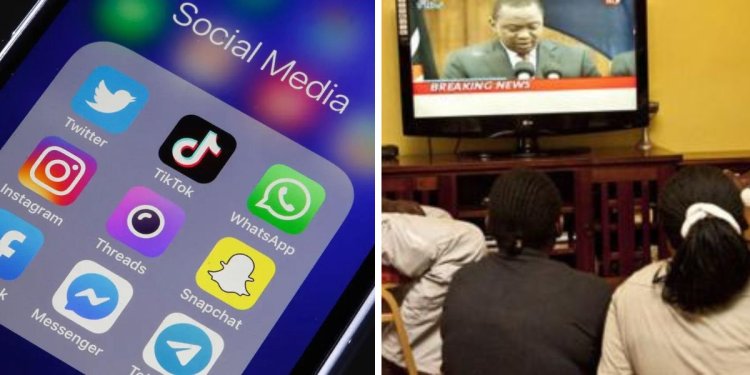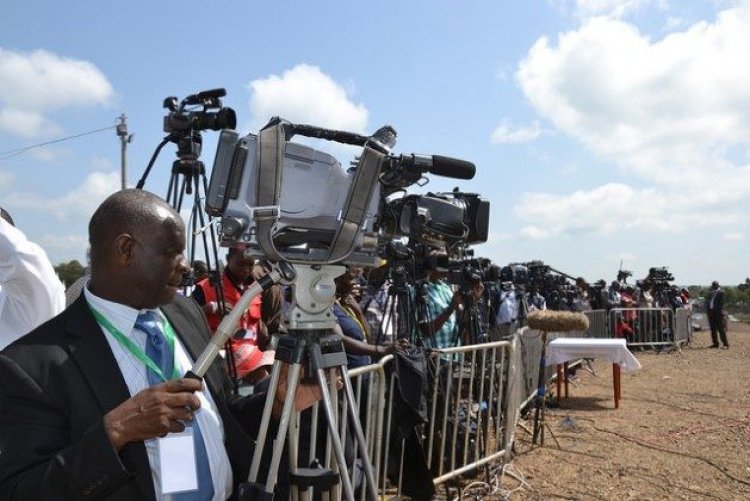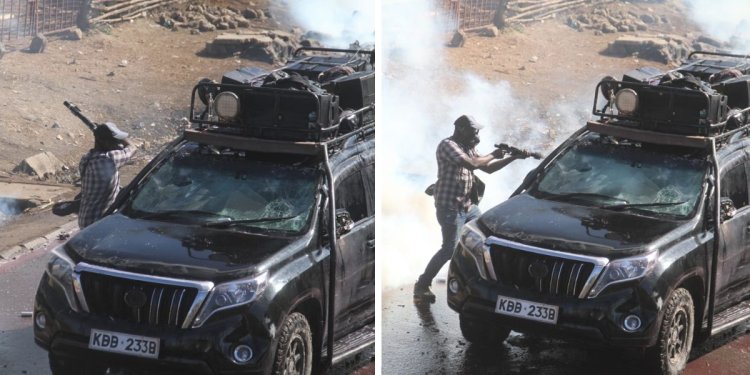Journalists Claim Plot To Shut Down TV, Radio, Internet During Azimio Protests
They alleged receiving reports of plans to shut down the mainstream media inclusive of television (TV) and radio as well as/or the internet...

The Kenya Media Sector Working Group on Sunday, April 2 claimed that there is a plot by President William Ruto's government to shut down the media on Monday, April 3 during the Azimio la Umoja demonstrations.
In a press statement obtained by Viral Tea, the media stakeholders urged the government not to interfere with the flow of information relayed to members of the public in a society where all can freely exercise the right to freedom of opinion and expression, including seeking, receiving, and imparting information and ideas, which is foundational for democracy and liberty.
They alleged receiving reports of plans to shut down the mainstream media inclusive of television (TV) and radio as well as/or the internet on April 3, a move that they termed would throw the country into an information blackout.

Kenyan journalists covering a past event. /FILE
"The government should not do anything that denies the free flow of information to the public. We have received reports of plans to shut down the broadcast media and/or the internet and throw the country into information darkness ahead of tomorrow’s demonstrations.
"This would be a most ill-advised and grievous assault on Kenya’s democracy. From the media perspective, taking this route will sink as a country," read the statement in part.
The journalists further acknowledged that the right to peaceful assembly is the foundation of a democratic and tolerant society as enshrined in the Constitution and the media have a democratic duty to bring such information to the public. However, they noted with concern the wave of attacks both offline and online meted against media workers in the line of duty.
In particular, the Kenya Media Sector Working Group noted with alarm the increasing number of journalists targeted by law enforcement officers.
Since the demonstrations by the Azimio La Umoja Coalition began on March 20, 2023, it has documented more than 20 cases of attacks and violations against journalists, including harassment, arbitrary arrests and physical attacks with state actors responsible for or encouraging a significant proportion of these attacks.
"We take great exception to the profiling of the media and blunt threats by the Deputy President, the Prime Cabinet Secretary and the Inspector General of Police. Such sentiments, coming from the offices with the prime responsibility of protecting the media, are shocking and unfortunate. We call upon all actors in Kenya to stop profiling and attacking journalists, as it is an attack on democracy," added the statement.
The journalists demanded that the Director of Public Prosecution (DPP), the Inspector General of Police (IG) and the Independent Policing Oversight Authority (IPOA) ensure accountability for all threats and violence against journalists through impartial, prompt, thorough and independent and effective investigations with the aim of bringing to book the perpetrators behind attacks while ensuring access to effective remedies and compensation to the victims.
"We demand that the DPP addresses the nation to give an update on the status of investigations and plan for the prosecution of the attackers. In this regard, we hereby issue to the DPP, a seven-day ultimatum to deliver a statement on the status of the investigations and prosecution of those culpable.
"We also call upon the IPOA to update the nation on the status of the investigation of police brutality against journalists," they demanded.
They also demanded that the government commits to compensating journalists already harmed, including paying for their medical treatment and replacing damaged or lost equipment, failure to which media houses should consider blacking out government events.
On live coverage, the stakeholders addressed its policy position being that every media house, while entitled to do live coverage, needs to have the proper equipment and deploy the proper technology that can allow delayed relay of the feed of the live coverage that may be used for purposes of incitement and vilification of others.
Broadcasters were encouraged to conduct proper risk assessments and to deploy equipped personnel and technology that can ensure coverage that adheres to the highest journalistic standards and ethics.
Media houses were compelled to prioritize the safety and welfare of journalists covering conflict situations.
"We demand clear safety and protection protocols before they deploy journalists to cover situations that are potentially violent. Journalists deployed must be properly insured against such risks and must be provided with proper Personal Protective Equipment (PPE)," added the stakeholders.
The group went on to acknowledge welfare issues facing many media houses but demanded that the media houses commit to a plan to settle journalists’ outstanding salary arrears and statutory remittances to respective authorities for the benefit of journalists.
In a media address, the group further warned of the consequences of potential attacks on journalists on April 3, vowing to stage nationwide protests on Wednesday, April 5 if any member of the press is hurt during the Monday protests.


 admin
admin 




